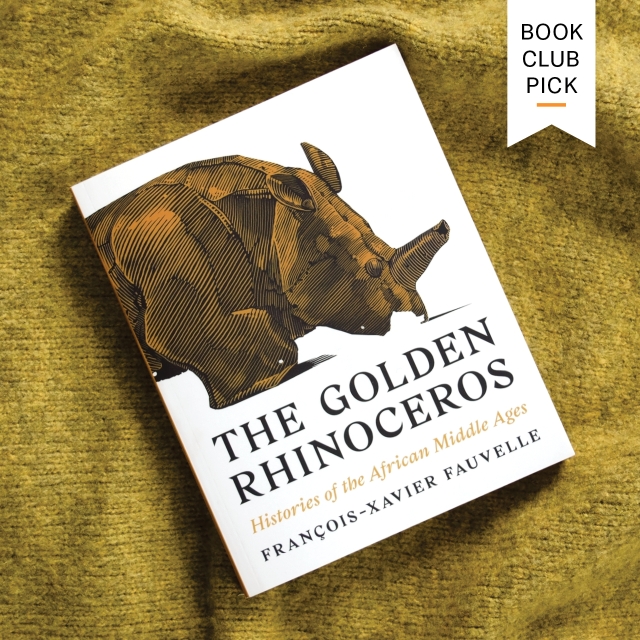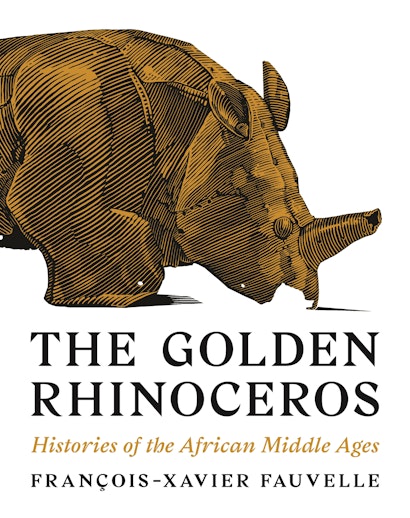From the birth of Islam in the seventh century to the voyages of European exploration in the fifteenth, Africa was at the center of a vibrant exchange of goods and ideas. It was an African golden age in which Ghâna, Nubia, and Zimbabwe became the crossroads of civilizations, and where African royals, thinkers, and artists played celebrated roles in an increasingly globalized world. François-Xavier Fauvelle brings this thrilling era marvelously to life. A book that finally recognizes Africa’s important role in the Middle Ages, The Golden Rhinoceros carefully pieces together the written and archaeological evidence to tell an unforgettable story that is at once sensitive to Africa’s rich social diversity and alert to the trajectories that connected Africa with the wider Muslim and Christian worlds.
Discussion Questions
- Much of the information presented in this book was originally recorded by non-African travelers. How do you think this affects the historical accuracy of these stories?
- How has reading these histories challenged or changed your previous conceptions about African histories?
- What was Africa’s relationship to the rest of the world during the Middle Ages?
- Who is Abû Ubayd al-Bakrî and which kingdom did he write about? How did he shape non-Africans’ perceptions about sub-Saharan Africa?
- What do the legends around West African gold say about its demand and significance during the Middle Ages?
- What does it mean that legends around historical artifacts, such as the golden rhinoceros, center non-African people? How does this illuminate the differences between how outsiders view the objects as opposed to how those within that culture view the objects?
- How did different religions shape African civilizations during this time?
- After reading the diverse histories of the African continent presented in this book, what do you make of the misrepresentation of Africa as a monolith in popular culture?
- How familiar do you think the average person is with the civilizations or historical figures that this book mentions? Why do you think African histories are much less known as compared to the histories of other areas of the world?
- Who has the power to shape a history and decide which versions are told and which are not? Who should have that power?
About the Author
François-Xavier Fauvelle is professor at the Collège de France, Paris. One of the world’s leading historians of ancient Africa, he has conducted archaeological digs in South Africa, Ethiopia, and Morocco.

